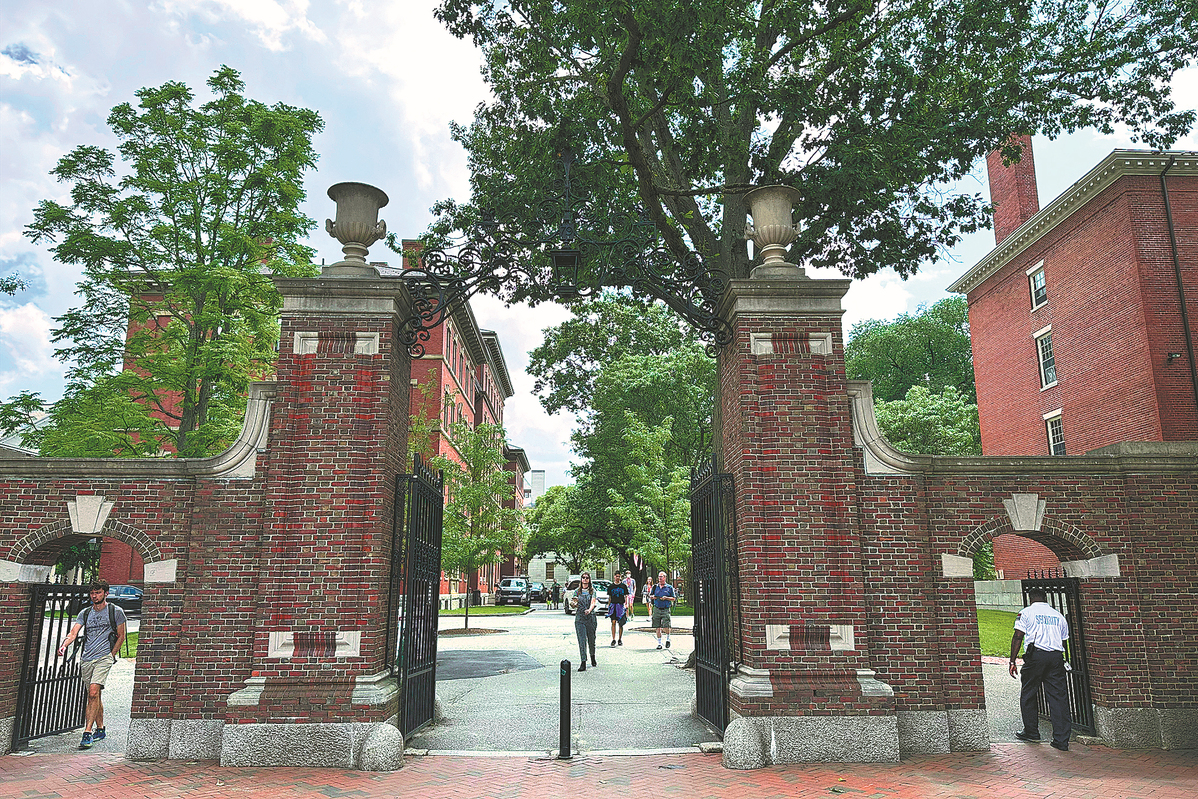Legacy admissions in the eye of storm
By LIA ZHU in San Francisco | China Daily | Updated: 2023-08-15 06:49

The ban on race-conscious admissions has renewed the criticism of the controversial practice of legacy admissions. The practice is accused of systematically disadvantaging applicants of color and contradicting the universities' stated commitment to campus diversity.
Lawyers for Civil Rights said they filed this civil rights complaint against Harvard to "level the playing field for applicants of color who overwhelmingly are not benefited by these preferences".
In the complaint, the minority advocacy group asked the Education Department to declare that Harvard end the practice if it is to continue to receive federal funds and argued that legacy admissions "are not justified by any educational necessity".
The Education Department's Office for Civil Rights will examine whether Harvard violates Title VI of the Civil Rights Act of 1964, a federal law that prohibits discrimination, exclusion from participation or denial of benefits "on the ground of race, color or national origin".
According to the complaint, which cited Harvard data, 70 percent of the university's donor-related and legacy applicants are white, and they are about six times more likely to be admitted. For the Class of 2019, about 28 percent of them were legacies with a parent or other relative who went to Harvard.
Legacy preference has deep roots in higher education, especially at private colleges. It has been more widely used at top-tier universities than at less selective schools.
A 2011 study published in the journal Economics of Education Review showed that at 30 highly selective colleges, primary legacies, or those applicants with one of their parents being alumni of the school, were more than three times as likely to gain admission as non-legacies.
The controversy over legacy admissions has smoldered for a long time. The practice has drawn intense criticism in recent years, and was put into the spotlight in 2020 following a nationwide cheating scandal which also eroded public trust in college admissions.
In that case, wealthy parents paid an independent college counselor to arrange for cheating on their children's standardized tests or fake their athletic credentials and bribe coaches to secure admission.
























